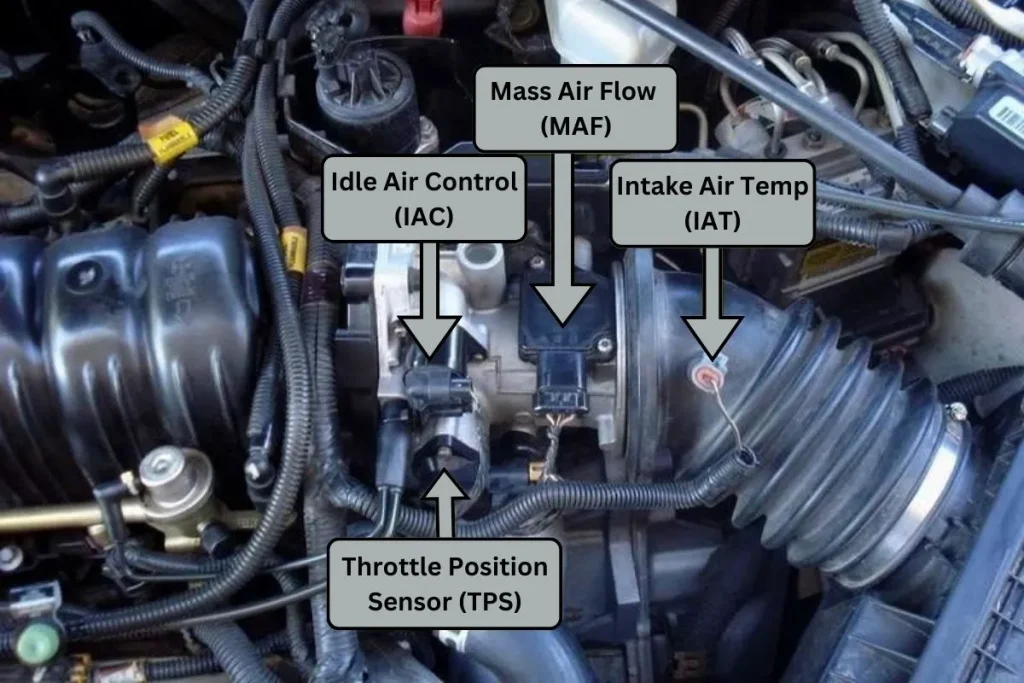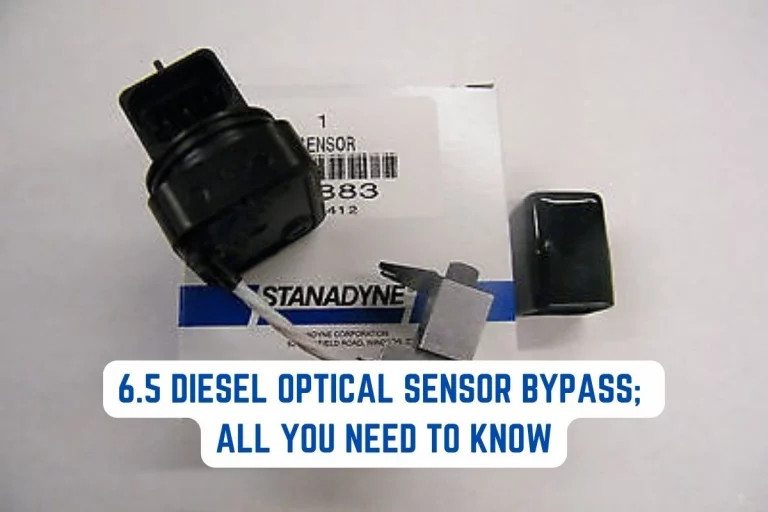Can a Bad Mass Air Flow Sensor Cause Overheating?
Yes, a bad mass air flow sensor can cause overheating in an engine. It can lead to an imbalanced fuel-to-air ratio and compromised cooling system functionality, resulting in increased engine temperatures and potential overheating.
In the intricate world of automotive engineering, various components work harmoniously to ensure optimal performance and efficiency. One such component, the mass air flow sensor, is vital in maintaining the delicate balance between fuel and air mixture. However, when this sensor malfunctions, it can have far-reaching consequences, including potential engine overheating.

In this article, we will explore the relationship between a bad mass air flow sensor and overheating, shedding light on the importance of promptly diagnosing and addressing this issue.
Table of Contents
- Engine Overheating and its Causes
- Potential Impact of a Bad Mass Air Flow Sensor
- How a Bad Mass Air Flow Sensor can Lead to Overheating?
- What happens if you unplug a mass air flow sensor while running?
- Importance of Regular Maintenance and Sensor Replacement
- Conclusion
- Some related FAQs
Engine Overheating and its Causes
Engine overheating is a serious issue that can lead to severe damage if not addressed promptly. It occurs when the engine’s temperature exceeds the optimal range, causing vital components to malfunction and potentially leading to catastrophic failure.
Several factors can contribute to overheating, including a malfunctioning cooling system, low coolant levels, and a compromised radiator.
Potential Impact of a Bad Mass Air Flow Sensor
A faulty mass air flow sensor can manifest itself through various symptoms. Common signs of a malfunctioning sensor include rough idling, reduced engine power, and decreased fuel efficiency. However, it is important to note that a direct correlation exists between a bad mass air flow sensor and engine overheating.

How a Bad Mass Air Flow Sensor can Lead to Overheating?
Impaired air-fuel mixture ratio
One way in which a malfunctioning mass air flow sensor can cause engine overheating is through an impaired air-fuel mixture ratio.
When the sensor fails to measure the incoming air volume accurately, it can provide incorrect data to the ECU. Consequently, the ECU may inject an inappropriate amount of fuel into the combustion chamber, leading to a rich or lean fuel mixture.
Rich fuel mixture
A rich fuel mixture can result in incomplete combustion, generating excessive heat.
On the other hand, a lean fuel mixture can cause the engine to run hotter, as there is an insufficient amount of fuel to cool critical components.
In both scenarios, the incorrect air-fuel ratio can contribute to increased engine temperatures, ultimately leading to overheating.
Can compromise the functionality of the engine cooling system
Furthermore, a malfunctioning mass air flow sensor can compromise the functionality of the engine cooling system. The ECU relies on accurate sensor data to determine when to engage the radiator fan and control the coolant flow.
Without precise information from the sensor, the ECU may not activate the cooling mechanisms at the appropriate times, potentially causing the engine to overheat.
What happens if you unplug a mass air flow sensor while running?
Unplugging a mass air flow sensor while the engine is running can have immediate effects on the engine’s performance. The engine control unit (ECU) relies on the data provided by the mass air flow sensor to calculate the appropriate fuel-to-air ratio for combustion.
When the sensor is unplugged, the ECU enters a default mode, typically known as a “limp mode,” which uses pre-set values for fuel injection and ignition timing.
This can result in a rough idle, decreased power output, and reduced fuel efficiency. Additionally, unplugging the sensor may trigger the check engine light and cause diagnostic trouble codes to be stored in the ECU.
Importance of Regular Maintenance and Sensor Replacement
Given the potential consequences of a bad mass air flow sensor, regular maintenance and timely replacement are crucial. Routine inspections, including visual checks and sensor cleaning, can help detect early signs of sensor malfunction.
Additionally, it is essential to address any symptoms promptly and consult a professional mechanic for diagnosis and replacement if necessary.
Diagnosing and replacing
Diagnosing and replacing a faulty mass air flow sensor typically involves several steps. Firstly, the technician will conduct a comprehensive inspection, utilizing specialized diagnostic tools to assess the sensor’s functionality.
If a malfunction is confirmed, the sensor should be promptly replaced with a genuine replacement part to ensure optimal performance and prevent further complications.
Conclusion
In conclusion, a bad mass air flow sensor can indeed contribute to engine overheating. As a vital component in the engine management system, the sensor plays a critical role in maintaining the proper fuel-to-air ratio for combustion. When the sensor malfunctions, it can lead to an imbalanced mixture, increasing engine temperatures and potential overheating.
Regular maintenance and prompt replacement of a faulty mass air flow sensor are imperative to avoid these issues. By addressing sensor-related concerns promptly, vehicle owners can safeguard their engines from overheating, ensuring optimal performance and longevity. So, the next time you encounter symptoms of a bad mass air flow sensor, don’t underestimate its potential impact on your engine’s temperature—act swiftly and consult a professional mechanic to keep your vehicle running smoothly.
Some related FAQs
Can a bad mass air flow sensor cause my engine to stall?
Yes, a faulty mass air flow sensor can disrupt the air-fuel mixture, leading to an unstable combustion process. This can result in engine stalling or intermittent stalling episodes.
Will a bad mass air flow sensor affect my vehicle’s acceleration?
Absolutely. The mass air flow sensor plays a crucial role in determining the optimal fuel-to-air ratio for combustion. A malfunctioning sensor can cause a lean or rich fuel mixture, resulting in sluggish acceleration and reduced engine performance
Can a dirty mass air flow sensor cause issues?
A: Yes, a dirty mass air flow sensor can lead to inaccurate readings and disrupt the air measurement process. This can result in imbalanced fuel-to-air ratios, affecting engine performance, fuel efficiency, and potentially causing engine stalling or hesitation.
How do I know if my mass air flow sensor is failing?
There are several signs of a failing mass air flow sensor. These include rough idling, reduced power output, decreased fuel efficiency, engine hesitation or stumbling, and the illumination of the check engine light. If you experience any of these symptoms, it is recommended to have your sensor inspected and potentially replaced.






